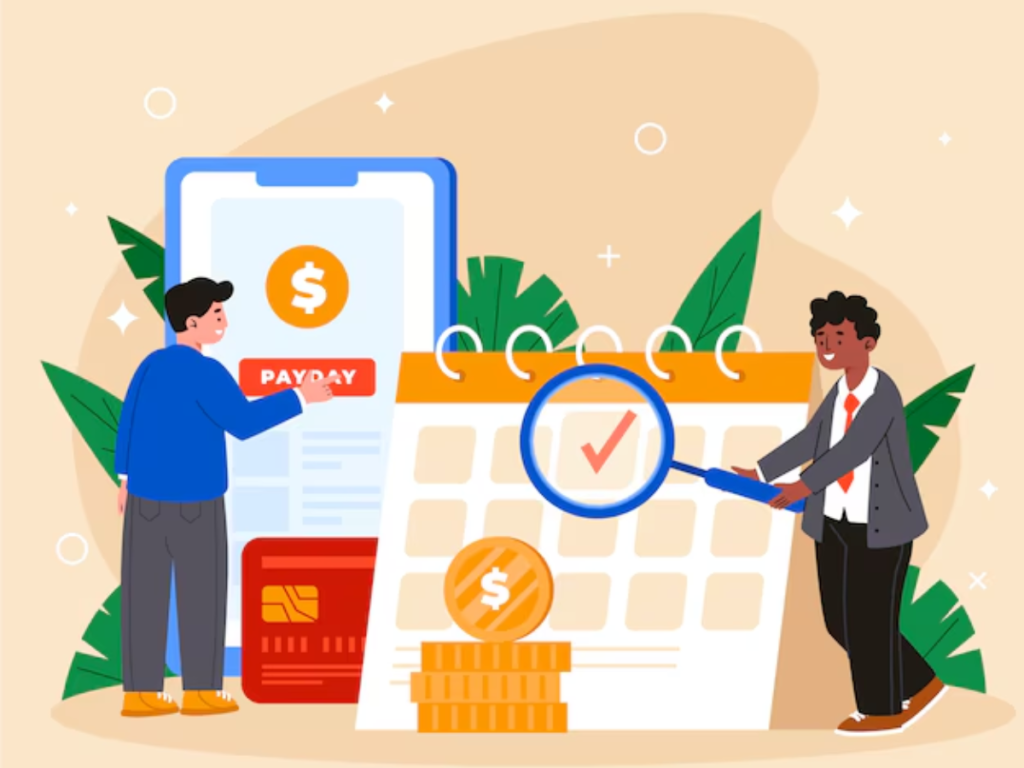Introduction
When it comes to loans there is a need to know the different methods of closing them Loan settlement and loan foreclosure are two distinct strategies that can be pursued by the borrowers depending on their financial condition Although both relate to clearing the loan dues their consequences on credit scores financial stability, and ability to borrow in the future are entirely different Knowing these details can assist the borrowers with informed decisions regarding effectively managing their debt
What is Loan Settlement
Loan settlement is a procedure where a borrower in financial difficulty pays back a loan by negotiating with the lender to pay a lower amount as a one-time settlement The lender feels compelled to waive part of the due amount in exchange for closing the loan This measure is normally taken when the borrower fails to repay due to circumstances in financial hardship like loss of job medical crisis or business slump
How Loan Settlement Works
The loan settlement process usually involves the following steps
The borrower approaches the lender with an explanation of their inability to pay the entire loan amount and asks for a settlement proposal
The lender examines the financial position of the borrower and can offer a lower amount that the borrower must pay in one lump sum
Once the borrower and lender mutually settle on the payment amount the payment is made and the loan is recorded as settled by the lender
While the loan account may be closed the credit report still indicates that it was settled and not completely paid back which reflects adversely on the credit score of the borrower
Loan Settlement in the Following Situations is Regarded
Borrowers typically choose loan settlement in situations like
Extreme financial distress wherein repayment of the full loan is beyond possibility
Repeated default in payments resulting in huge overdues
Legal notice or recovery proceedings from the lender
When the loan has become a non-performing asset NPA as a result of long-term default
Benefits of Loan Settlement
Instant debt relief without paying the total amount
Prevents further legal proceedings or asset confiscation by the lender
Enables borrowers to arrange a reasonable final payment
Disadvantages of Loan Settlement
Severely hurts the credit score of the borrower rendering future loans difficult to secure
The settled record is left on the credit report for years impacting financial credibility
Lenders can treat the borrower as a high-risk candidate for future credit sanction
The waived-off amount can be taken as taxable income in certain situations
What is Loan Foreclosure
Foreclosure of loan refers to a practice in which the borrower chooses to settle the complete outstanding loan balance prior to tenure expiry
Instead of making recurrent payments until maturity of the scheduled loan the borrower settles the entire loan with funds from savings windfalls or leftover income
How Loan Foreclosure Works
The borrower checks with the lender for the exact outstanding balance including any applicable foreclosure charges
The borrower makes the lump sum payment to clear the entire debt
The lender updates the loan status as closed in the credit records and provides a No Objection Certificate NOC as proof of full repayment
Situations Where Loan Foreclosure is Beneficial
When the borrower gets additional income like a yearly bonus inheritance or business returns and wishes to pay off debt prematurely
When the objective is to save interest expenses by prepaying the loan
When the borrower needs to enhance the credit record by wiping out pending liabilities
Benefits of Loan Foreclosure
Saves on interest payments by reducing the total cost of borrowing
Improves the borrower’s creditworthiness as the loan is marked as closed rather than settled
Provides financial freedom by eliminating monthly loan obligations
Enhances eligibility for future loans as lenders prefer applicants with a strong repayment history
Disadvantages of Loan Foreclosure
There are some lenders who impose a penalty of foreclosure which is expressed as a percentage of the balance outstanding
Foreclosure using all savings can leave the borrower with little liquidity for unexpected situations
Premature closure of some loans like home loans can lead to forfeiture of tax relief on interest payments
Key Differences Between Loan Settlement and Loan Foreclosure
Loan settlement and loan foreclosure are used for different purposes and have different financial implications The table below outlines their main differences
Loan settlement entails negotiating with the lender to pay a lesser amount while loan foreclosure involves paying the entire outstanding amount in advance
Loan settlement has a negative impact on the credit score of the borrower while loan foreclosure enhances creditworthiness
A settled loan is a negative comment for potential lenders while a foreclosed loan is positively perceived
Settlement is often a choice for borrowers who are in financial hardship while foreclosure is for individuals who have excess funds and want to minimize their financial load
Settlement does not fully erase the borrower’s record since the waived amount is a loss to the lender Foreclosure, however, totally eliminates the debt obligation
Settlement tends to impact future loan approvals since lenders are reluctant to lend to borrowers with settlement history Foreclosure is easier to qualify for future loans because of a clean payment history
When Should Borrowers Opt for Settlement or Foreclosure
The decision between settlement and foreclosure is based on the borrower’s financial situation and ability to repay
Settlement should be resorted to only if the borrower has no resources to repay the entire amount and is in a state of extreme financial distress It should be the last option as it harms credit health and future borrowing capacity
Foreclosure is best when the borrower can afford to pay back the entire loan at an early stage It saves interest and enhances financial stability But borrowers must make sure they have enough liquidity remaining after foreclosure to cater to other financial requirements
How to Avoid Loan Settlement
Settlement must be avoided as far as possible because it causes long-term negative impacts Here are a few strategies for avoiding finding oneself in a situation where settlement has to be considered
Borrow Responsibly Borrow loans only if unavoidable and at your repayment limit
Emergency Fund Keeping funds reserved for surprise expenditure can help avoid missed payments and defaults
Take Loan Restructuring Over settlement, borrowers can bargain with lenders for new repayment conditions like reduced EMIs or increased tenure
Pay Priorities Have a systematic payment schedule through channels like the debt snowball or debt avalanche strategy
Talk to Lenders In case of repayment trouble, early notification to the lender might be beneficial in exploring a superior alternative to settlement
The Long-Term Effect of Loan Settlement and Loan Foreclosure
Not only does settling or foreclosing a loan have an immediate effect on the borrower but also a long-term effect on the borrower’s finances. Knowledge of the long-term implications can guide the borrower into making a sound decision that supports his or her long-term goals.
Long-Term Effects of Loan Settlement
Loan settlement can bring instant relief from financial obligations, but its effects can remain for a few years. A few of the long-term effects are:
Lower Credit Score for Several Years
When a loan is paid, the lender reports it to credit bureaus as “settled” instead of “closed” or “fully paid.” This report stays on the credit report for a maximum of seven years, resulting in a lower credit score and decreasing the creditworthiness of the borrower.
Difficulty in Obtaining Future Loans
Banks and other financial institutions consider settlement of loans a negative sign, signaling that the customer has been struggling with repayments in the past. Consequence:
- The loan applications will be turned down.
- Interest rates for future loans can be increased.
- The lenders might ask for a larger down payment or other security for lending purposes.
Restricted Access to Credit Cards and Financial Products
A past history of loan settlement could influence not just subsequent loan applications but also other financial products, including credit cards, mortgages, and other types of loans. Banks might then treat the borrower as a high-risk applicant, and accessing credit at some future point becomes more difficult.
Emotional and Financial Stress
Although loan foreclosure brings relief, the long-term financial limitations can be stressful and frustrating. A borrower can find it difficult to secure financing for basic needs, like buying a house or paying for higher education, because of their blackened credit record.
Long-Term Effects of Loan Foreclosure
Loan foreclosure, on the contrary, is beneficial in the long run, particularly for those who well plan their finances. Following are some advantages of foreclosure:
Better Credit Score
Once the loan is foreclosed, the lender makes the credit report updated to show that the loan is “closed” and paid in full. This has a positive effect on the credit score compared to settlement, with the advantage of easier qualification for future loans and credit products.
Greater Financial Freedom
Since there are no monthly EMIs to worry about, the borrower can redirect this money to pursue other financial objectives like:
- Investing in income-generating assets.
- Creating an emergency fund.
- Saving for significant financial milestones such as home ownership or retirement.
Improved Loan Eligibility in the Future
Borrowers who have a history of timely loan repayment are favored by lenders. Foreclosing a loan shows good financial discipline, and hence, it becomes easier to get loans in the future at reduced interest rates.
Interest Savings
One of the greatest benefits of foreclosure is that it saves total interest paid throughout the loan term. The sooner a loan is foreclosed, the higher the interest savings for the borrower, which can be utilized on other financial priorities.
How to Plan for Loan Foreclosure Effectively
If a borrower wishes to foreclose a loan, it should be done strategically to avoid liquidity issues or financial strain. Here are some tips for planning loan foreclosure effectively:
Last Word
Loan settlement and loan foreclosure are two distinct methods of closing a loan but their implications on a borrower’s financial well-being are entirely different Loan settlement must be avoided if there is no other choice because it hurts the credit score and restricts future borrowing capacity Loan foreclosure, however, is a wise financial decision for individuals who have excess funds and wish to pay off debt early and enhance their credit profile
Grasping these principles enables the borrowers to make informed choices regarding the effective management of their loans Proper financial planning, responsible lending and timely payments can guarantee a good credit score and long-term financial health

